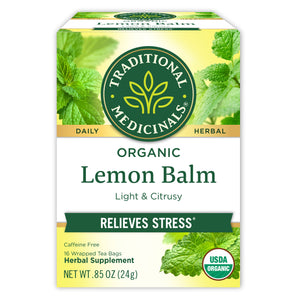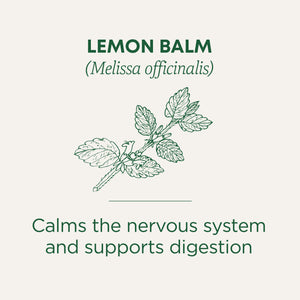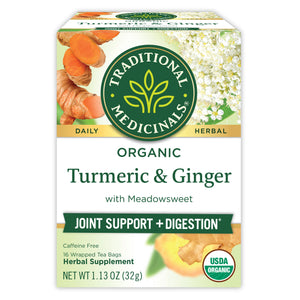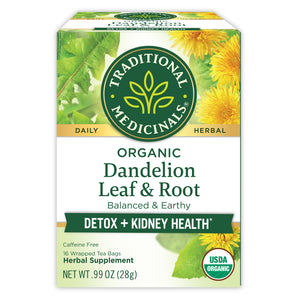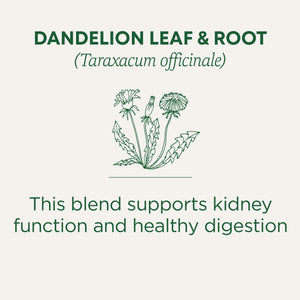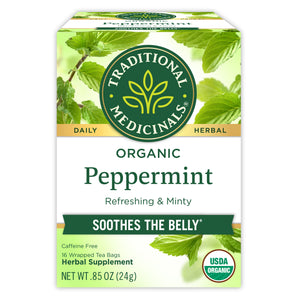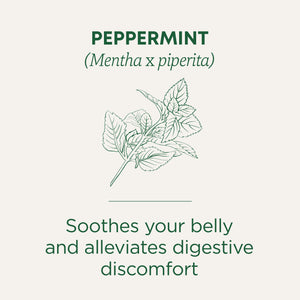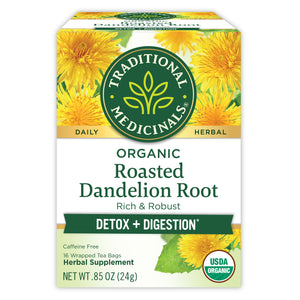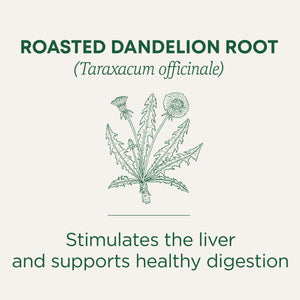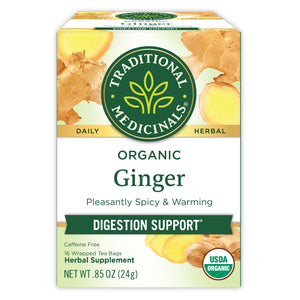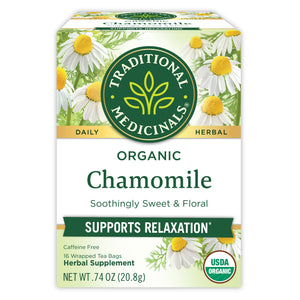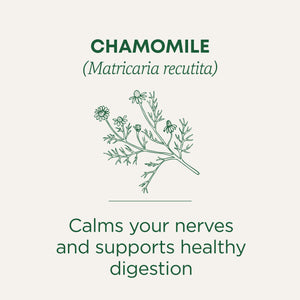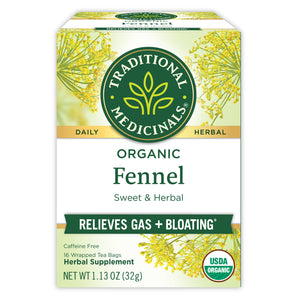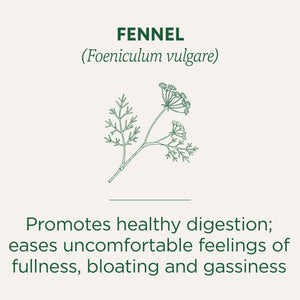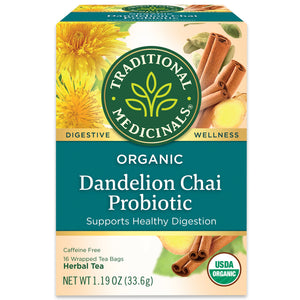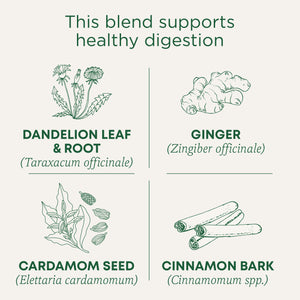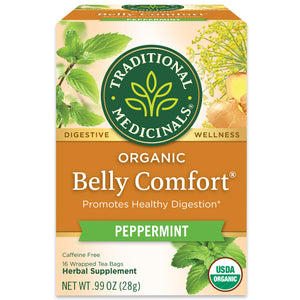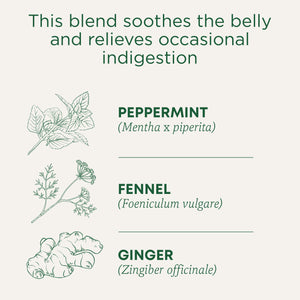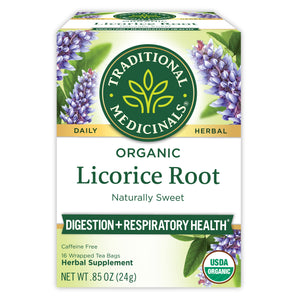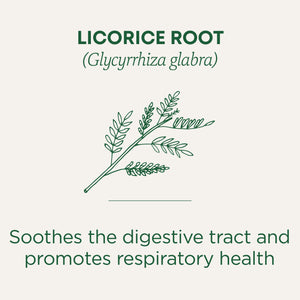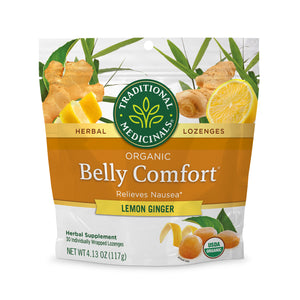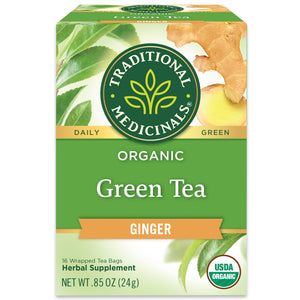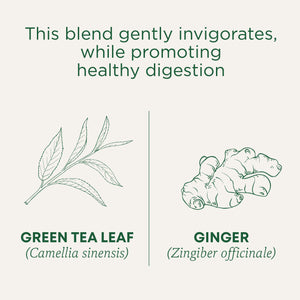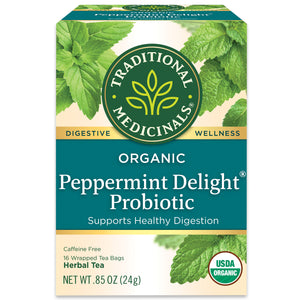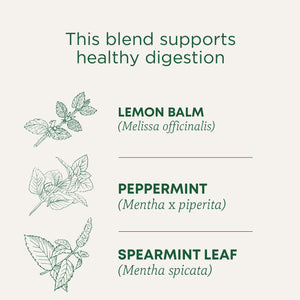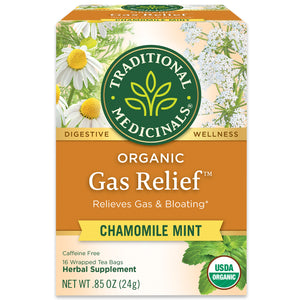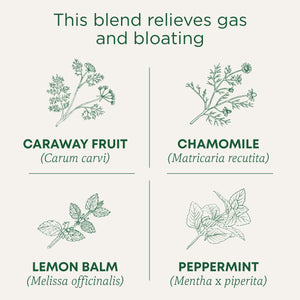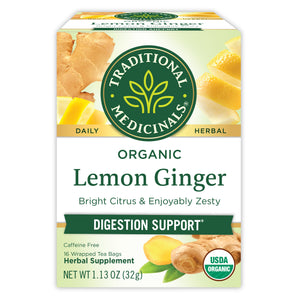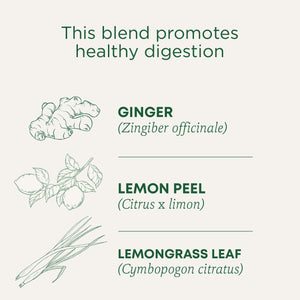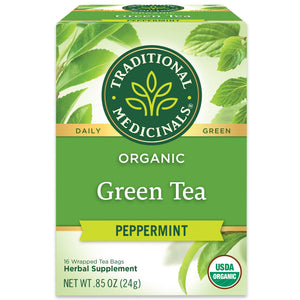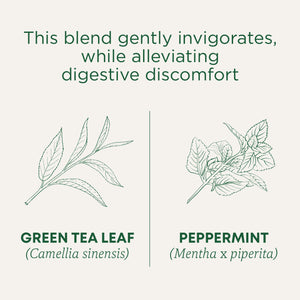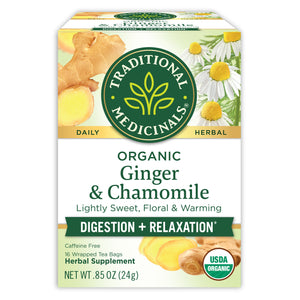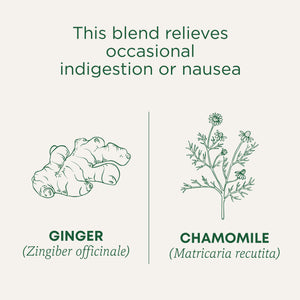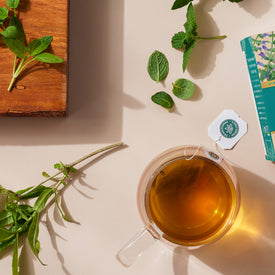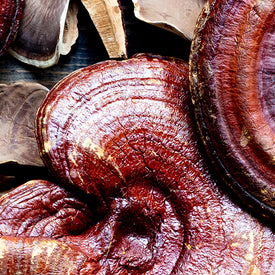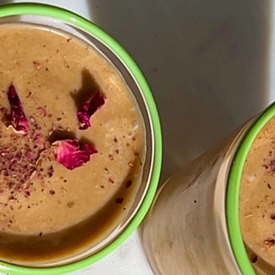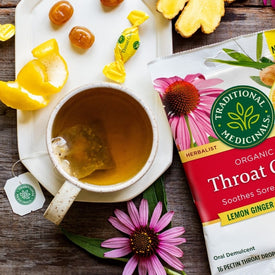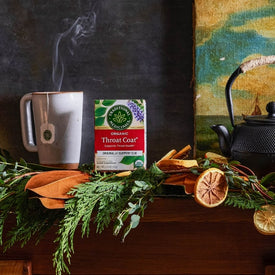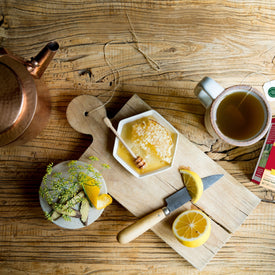Throughout the ages, humans have enjoyed fennel as a food, a spice, a flavoring, a medicinal herb, and even as a protective charm. More than many other plants, it offers tremendous range. In addition to its many digestive benefits, herbalists have used fennel for everything from helping alleviate water retention to facilitating breastfeeding in nursing mothers*. It’s the perfect herb for both your pantry and herbal medicine cabinet.
Fennel’s versatility has made it useful in countless herbal formulas. For this reason, our herbalists have used fennel as a key ingredient in so many of our teas and herbal products, such as our Fennel tea, Mother’s Milk®, Belly Comfort™, Breathe Easy®, EveryDay Detox Dandelion®, Gas Relief®, Pregnancy Tea®, Smooth Move®, Smooth Move Chamomile®, Smooth Move Peppermint®, Throat Coat®, Throat Coat Lemon Echinacea®, and Weightless Cranberry®. But not all fennel is created equal.
There are three types of fennel: sweet (or Roman) fennel with its sweet bulbs, used in Mediterranean cooking; onion-fennel, with its edible leafy sheaths; and bitter fennel, which has traditionally been used in herbal medicine. For this reason, we are partial to bitter fennel, aka Foeniculum vulgare spp. vulgare var. vulgare. Its genus name comes from the Latin name for the plant, foen, or “hay,” the scent of the plant’s dried leaves. Native to the entire Mediterranean region, bitter fennel is a hardy and short-lived perennial with yellow flowers organized in the form of an umbrella and threadlike leaves that resemble dill—not surprising given that both are from the Apiaceae family. Bitter fennel thrives in full sun and loves well-drained soils. European settlers first brought fennel to North America, and while it seems to grow well in coastal areas, it thrives particularly well on the West Coast, gracing rural roadsides throughout the summer.
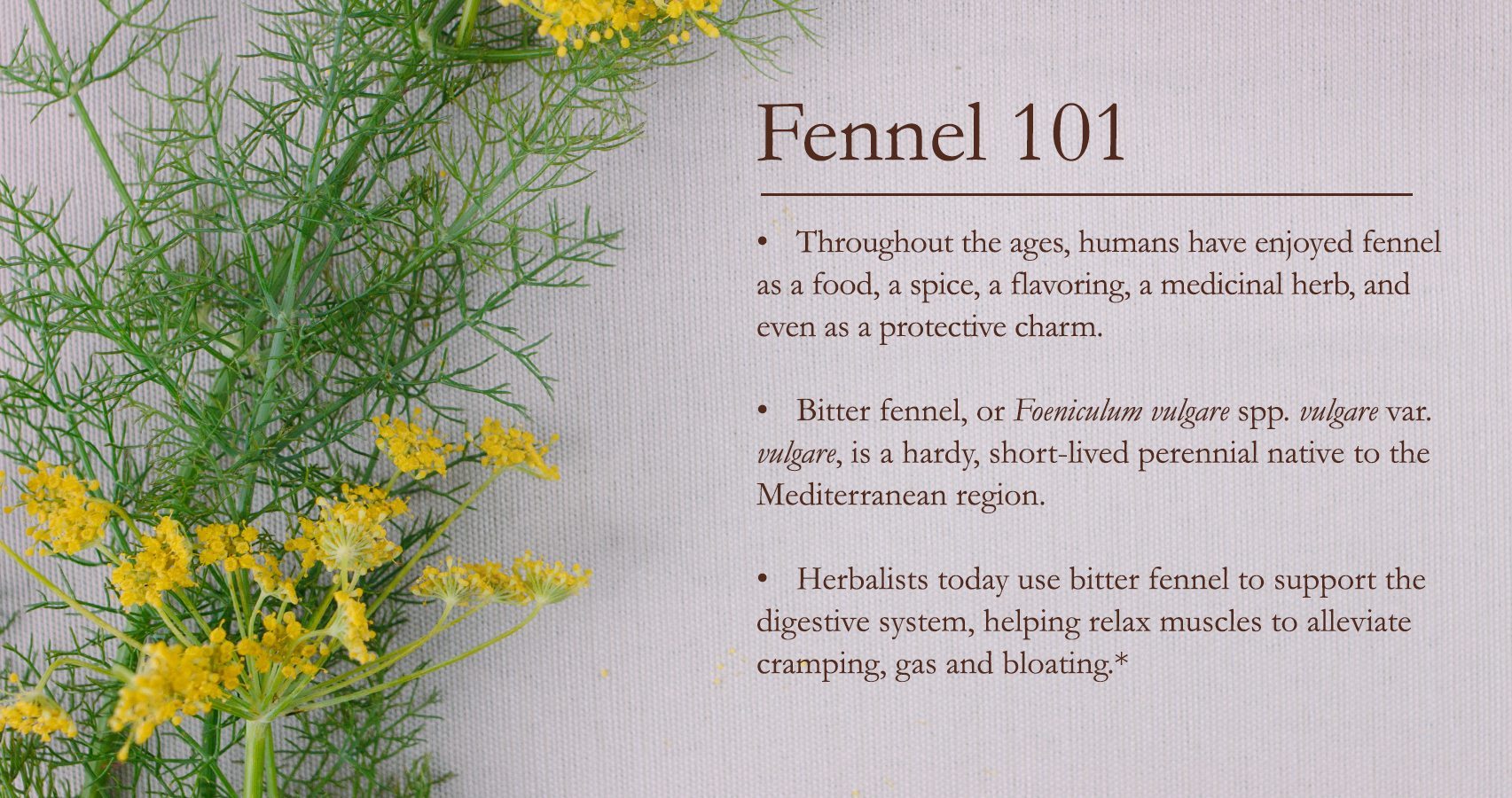
But fennel’s history dates much farther back than that. Many ancient cultures throughout the ages revered fennel for its charming properties and its power to bestow long life, courage, strength and even to ward off evil spirits, which may have been loosely linked to the plant’s actual medicinal benefits. In India, Ayurvedic healers praised fennel for its ability to balance the three body types, or doshas. Farther northeast, Traditional Chinese Medicine practitioners used fennel as a warming herb to address issues related to the stomach. In the Mediterranean region, fennel’s native home, ancient physicians like Hippocrates, Pliny the Elder and Dioscorides praised fennel for its ability to soothe indigestion and to help mothers in the production of breast milk.*
Today, our herbalists have tapped into these traditional uses to formulate our herbal teas and products. As a carminative, fennel helps relax muscles to alleviate cramping, gas and bloating.* The key to fennel’s herbal power lies in its high essential oils, typically found in the seeds. Anethole lends fennel that characteristic licorice-like taste and helps to fight free radicals; fenchone calms discomfort. Some of our favorite fennel comes from small, organic family farms in Bulgaria, where the fennel is high in these beneficial compounds.
The next time you find a fennel seed in your sausage or bread or sip on a glass of absinthe, consider the good reasons it may be included in the recipe. Fennel is a great herb to have handy in the kitchen, and by adding some of our fennel-based teas to your pantry, you’ll have a leg up on healthy digestion. Once you open your eyes to fennel’s benefits, don’t be surprised if you start seeing it everywhere!


